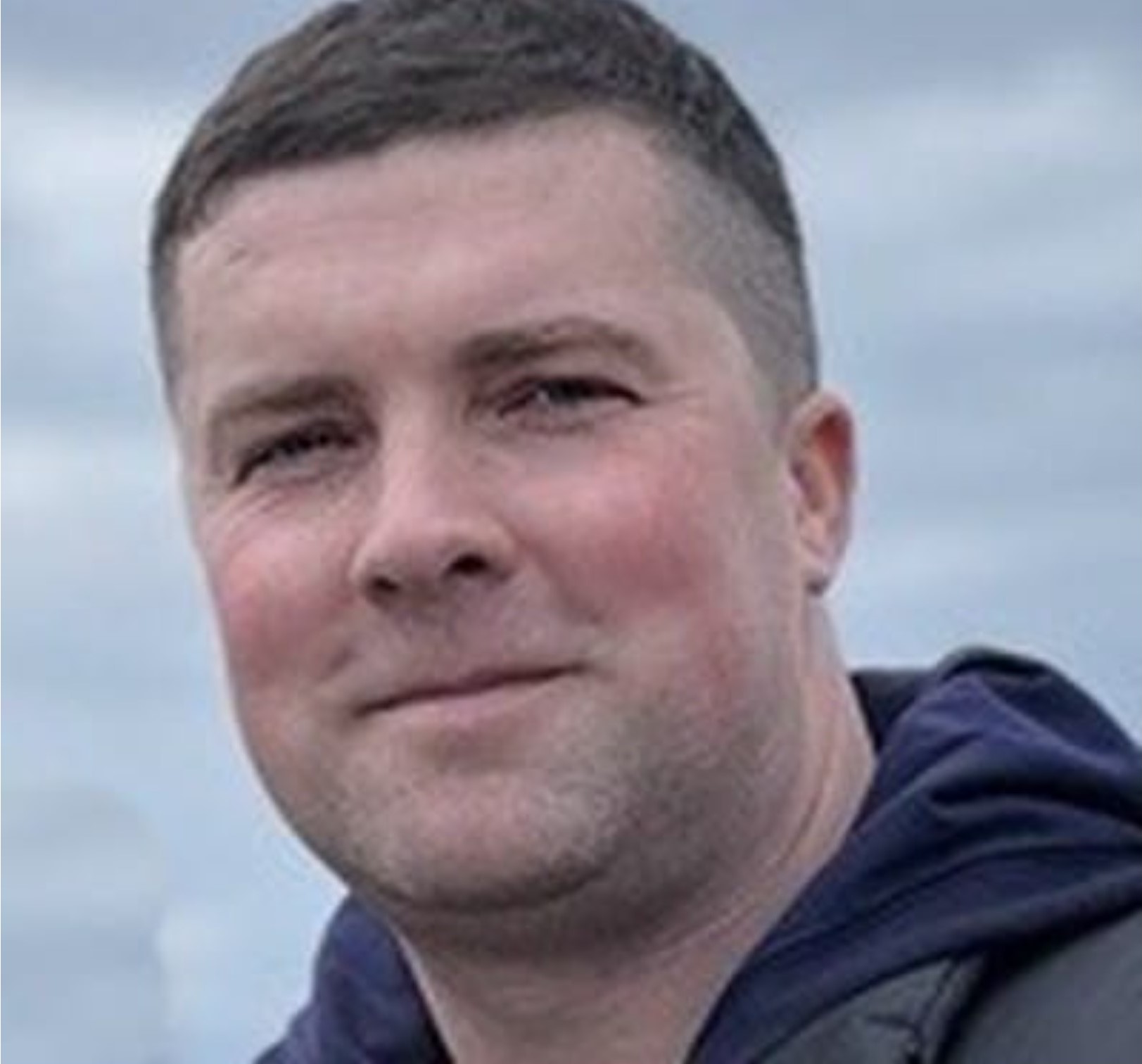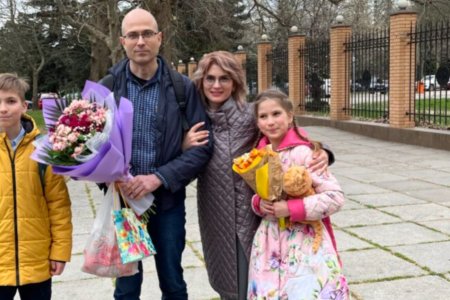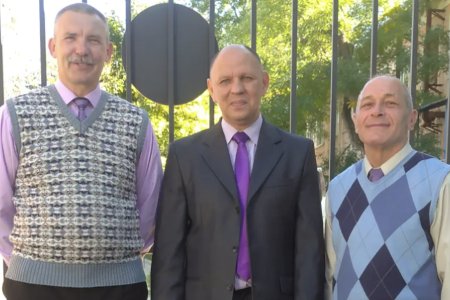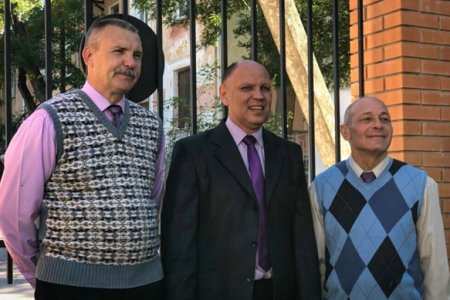
A ‘court’ in Russian-occupied Sevastopol has found Maksym Zinchenko guilty of ‘involvement in an extremist organization’ for practising his faith as a Jehovah’s Witness. Such ‘convictions’ have become virtually standard since Russia brought religious persecution to occupied Crimea. The surprise this time was, in fact, that the ‘judge’ passed a much lower sentence than that demanded by the prosecutor. It remains to be seen whether this is challenged at appeal level.
Zinchenko was charged under Article 282.2 § 2 of Russia’s criminal code with taking part in the activities of “a religious association” which has been banned by a ‘court’ for supposedly taking part in ‘extremist activities’. The charge is one of hundreds in Russia and occupied Crimea since the shocking ruling from Russia’s increasingly political ‘supreme court’ on 20 April 2017 which outlawed the Jehovah’s Witnesses, claiming the faith to be ‘an extremist organization’.
The prosecution claimed, and ‘judge’ Valery Kuznetsov from the occupation ‘Nakhimovsky district court’ in Sevastopol agreed, that Zinchenko had, for example, ‘propagated extremist ideas’ on the Internet. Aside from that nonsense, it is unlikely that Zinchenko actually denied the ‘accusations’. Nor was there any need as he was accused of totally legitimate activities of any Jehovah’s Witness or, in fact, any person peacefully practising his or her faith. Russia is hiding behind the dangerously woolly ‘extremism’ label and using terms like ‘a cell of an extremist organization’ to try to conceal flagrant religious persecution, which Russia’s own constitution bans. Zinchenko was essentially only accused of having taken part in the Sevastopol branch of the Jehovah’s Witnesses, of having organized meetings, presentations on studying religious material and given sermons on topics agreed by the congregation. He was presumably also ‘accused’ of having spoken, written or posted material about his faith on the Internet, or of inviting people to Jehovah’s Witness meetings via Messenger. In the ‘indictment’ confirmed by ‘prosecutor’ A.N. Gogolev, Zinchenko was ‘accused’ of having either asked other believers to read excerpts from the Bible or read them himself and then analysed their meaning.
As reported, Makysm Zinchenko and his wife Karina were subjected to an armed search of their home in Feodosia in the early morning of 22 May 2023. The men who burst into their home ordered them and another couple who were staying with them to lie on the floor, before taking Zinchenko away. He was placed under house arrest two days later.
The criminal proceedings against Zinchenko for supposed ‘participation in an extremist organization’ were initiated by ‘investigator’ Nikolai Pogorelov. According to information on the JW website, Pogorelov had threatened both Zinchenko and his wife if they did not ‘cooperate’ with the investigation. Maksym was told that his wife would be remanded in custody, Karina that her husband would get a long sentence and she would be prevented from seeing him. The ‘evidence’ against the believer was from a video recording of a service illicitly taped by FSB agents back in 2019 and already used to impose hefty sentences on Volodymyr Maladyka, Volodymyr Sakada and Yevhen Zhukov
It seems that even the ‘prosecution witnesses’, such as FSB officer Dmytro Shevchenko, ‘specialist’ Arkady Boyarkin and the standard ‘secret witness’, only confirmed that Zinchenko had attended Jehovah’s Witness meetings up till 2017, i.e. before Russia outlawed this world faith and began illegally persecuting believers on occupied Ukrainian territory.
The charges against Zinchenko were, at least, only of ‘participation’ (Article 282.2 § 2), not of ‘organising’, but even this charge can carry a sentence of up to six years’ imprisonment. According to Crimean Process, the ‘prosecutor’ had demanded a 5-year sentence. On 17 April 2024, however, ‘judge’ Valery Kuznetsov sentenced Zinchenko to two years’ imprisonment. He then applied a norm on making a sentence more lenient, and instead of imprisonment, ordered two years of compulsory work with restrictions on certain activities.
Crimean Process notes that the ‘court debate’, final address from Zinchenko and the sentence were all held on the same day. This, it says, indirectly indicates that the ‘court’ had already ‘passed sentence’ in advance. This is not, in fact, particularly unusual, with the vast majority of ‘trials’ of Crimean Tatar and other Ukrainian political prisoners almost certainly resulting in a predetermined sentence. It would, however, be a promising thing in this case as Kuznetsov’s sentence is so much lower than that demanded by the ‘prosecutor’. In at least one earlier case (that of Artem Gerasimov) an initial steep fine may have been imposed to deflect attention, with the fine overturned at appeal level, and Gerasimov sentenced to six years’ imprisonment.
In all of the many cases where Ukrainian believers have received real sentences, the charge (or one of two charges) has been of ‘organizing the activities’ of a JW group, not merely participation. Zinchenko is only the second Ukrainian to face the lesser charge of ‘participation’. On 16 February 2022, 32-year-old Artem Shabliy was found guilty of this charge, with ‘judge’ Iryna Altanets from the occupation ‘Kerch municipal court’ passing a two-year suspended sentence with a three-year period of probation.
It should be stressed that any such ‘suspended sentence’ can become real if a person is deemed to have repeated ‘the offence’. Where men and women are persecuted solely for practising their faith, the sentences can become real terms of imprisonment at any time.



